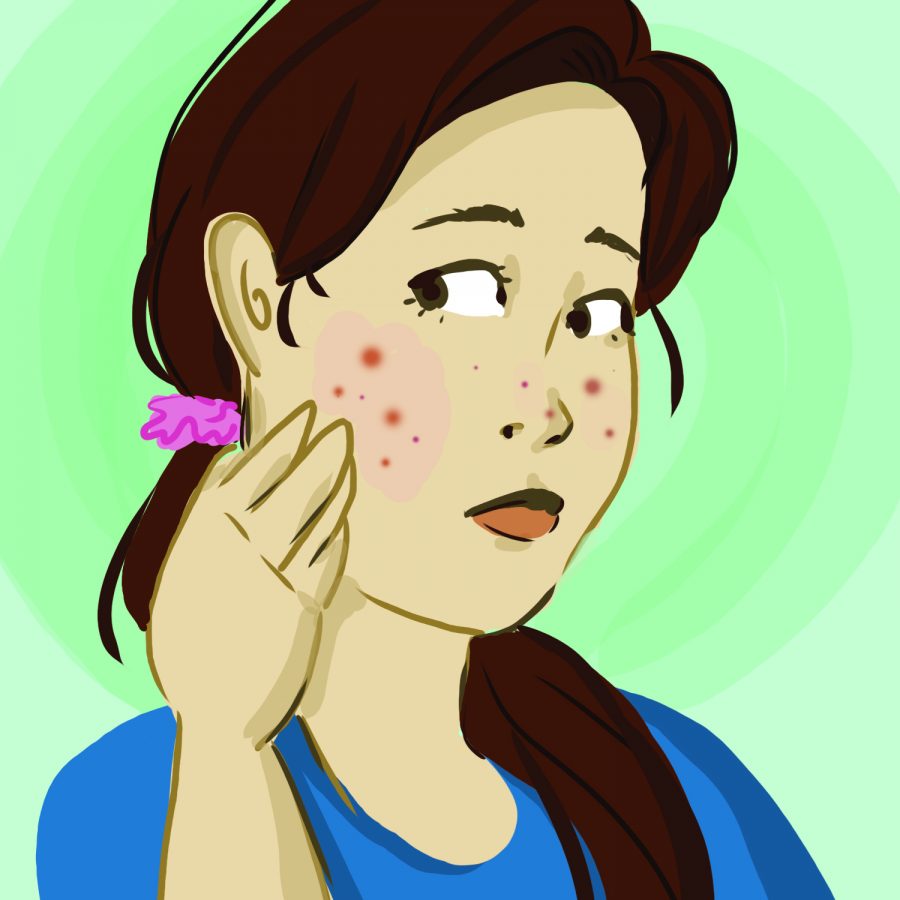The popular acne treatment isotretinoin — originally sold under the brand name Accutane — has been dubbed by some dermatologists as “the closest thing we have to a cure for acne,” and Chris Pine’s recent favorable review may tempt some into demanding a prescription. However, its myriad of side effects are notoriously severe and include everything from extremely dry skin to potential liver damage. Consequently, dermatologists are often hesitant to prescribe this oral medication. So how do you know if it’s right for you?
CAS junior Ladan Jaballas has a long history of severe cystic acne. After her freshman year of college, she made the decision with her doctor to go on isotretinoin.
“Before taking it I had been on antibiotics, birth control, various over-the-counter topicals and prescriptions, and Proactiv, but nothing worked for me,” Jaballas said.
Although isotretinoin worked for her, she still recommended it only as a last resort for those who have deep stubborn acne, especially considering the drug’s known potential to cause severe pregnancy complications. A Canadian study of over 59,000 women on isotretinoin found that 8 percent got pregnant and gave live birth, of which 11 percent had serious congenital abnormalities. The study further found the pregnancy rate on the drug to be between four and six out of 1,000. In order to manage the risks of isotretinoin therapy on pregnant women, the FDA mandates female patients that use isotretinoin join the iPledge Program. It requires them to take two forms of birth control and doctor-administered pregnancy tests.
Nursing sophomore Jennifer Horlick echoed Jaballa’s emphasis on isotretinoin being the last resort, as she also had to consider the implications of going on isotretinoin as a woman.
“My brother had taken Accutane before me, but I knew things would be a bit more complicated given the birth control requirements,” Horlick said.
Horlick found that the main side effect she experienced was dryness.
“I was on it for around six or eight months. It dried out my skin and I had extremely dry lips — Aquaphor was my best friend,” she said. “My hands were so dry, and there was also a period of time when I’d get nosebleeds almost every day because the inside of my nose was so dry. Sometimes I’d get multiple nosebleeds in one day.”
LS sophomore Brian Landry further underscored this aspect of the notorious treatment.
“Accutane really gets rid of acne, but it makes your skin super dry,” Landry said. “Sometimes it flakes off of your face and looks really bad for like, weeks at a time. During dry weather, you [have to] use hand cream and lip balm or else your skin will crack.”
Landry also noted that isotretinoin can sometimes make your joints sore because of its tendency to dry out the natural lubrication around your bones. Although isotretinoin cured Landry’s acne, he too agrees that isotretinoin be prescribed to those with a history of severe acne.
It is critical to know just how powerful a drug isotretinoin is and how it affects the body beyond just the skin on your face. However, if you and your doctor have weighed the benefits and drawbacks, isotretinoin may be the cure you have been waiting for.
A version of this article appears in the Tuesday, Feb. 19, 2019, print edition. Email Marisa Lopez at [email protected].

























































































































































